If you’re like most people, you probably think that eating high-fat foods make you fat. Sounds sensible, right?
As it turns out, even though the belief that eating fat will make us fat may seem intuitively obvious, it’s dead wrong. And yet, it has shaped our choices and habits for more than four decades. Unfortunately, the misinterpretation of a couple of large population studies from decades ago, along with a massive publicity campaign and government intervention, got the ball rolling. And to further muddy the waters, at the time, we had much less knowledge about the complexities of fat metabolism, especially regarding the differentiation between “good” fats and “bad” fats.
Having said all that, it’s still true that eating foods that contain the wrong kinds of fat can make you fat. Trans fats found in pie crusts and other baked goods and processed foods, and saturated fats found in processed and grain-fed meats, do, indeed, add significant calories while potentially harming your body’s nutritional status. But healthy fats will do the opposite. They can help curb your appetite and consequently reduce the number of calories you eat in a day, improve your heart health, rev up your metabolism, and provide essential nutrients.
So how do we make sense out of all of this? Let’s start small, by exploring two of the most prevalent myths surrounding this big fat controversy.
Myth 1: All fats are bad for you
As mentioned above, there are good fats and bad fats. The good fats promote weight loss, brain health, and normal levels of cholesterol. They also protect against inflammation, which causes disease and obesity. Conversely, bad fats promote abnormal levels of cholesterol, weight gain, and inflammation.
The Good Fats
Unprocessed organic oils such as coconut oil, avocados, and avocado oil
Organic butter from grass-fed cows, clarified butter, and extra virgin olive oil
Olives
Raw nuts and seeds such as chia seeds, flax seeds, almonds, pumpkin seeds, and walnuts
Egg yolks from pastured hens
Lean meat from animals that are free-range and/or grass fed
The Bad Fats
Corn oil
Canola oil
Soy oil
Hydrogenated or partially hydrogenated fats
Margarine and shortening
Myth 2: Eating fat will make you fat
From a caloric perspective, it makes sense to think that fat makes you fat, because dietary fat contains more than twice as many calories per gram as do carbs and protein. Common sense would dictate that if you eat less fat, you will eat fewer calories, and you will lose weight, right?
Unfortunately, that theory doesn’t work, because all calories don’t have the same impact on your weight and metabolism. While all calories are the same in a laboratory, our bodies are not laboratories—they are multitasking organisms whose activities are interconnected and complicated.
What hasn’t been recognized until recently is that the food we eat affects the expression of the genes that cause or prevent disease. Food literally turns on health genes or disease genes, and tells those genes to store or burn fat. Food influences your hormones, your brain chemistry, your immune system, and even your gut bacteria.
Furthermore, while you can technically overeat enough fat calories to gain weight in the form of fat, it’s difficult to do. Fat is very satisfying, especially when paired with low carbohydrate foods. Dietary fat in the presence of large amounts of dietary carbohydrates can make it difficult for your body to access your stored fat for energy, while eating dietary fat in the presence of low levels of dietary carbohydrates makes it easier to access stored fat for energy.
Recent studies reveal that healthy fats, not rigorous calorie counting or low-fat diets, can help you get leaner. In human research studies, those who ate high-fat diets had a much faster metabolism. Conversely, low-fat, high-carb diets spiked insulin, which resulted in a slower metabolism and belly fat storage. The higher-fat diet group had a faster metabolism, even while eating the same amount of calories.
So what’s the take-home message?
Most of your fat-cell biology, which regulates whether you will gain or lose fat, is controlled by the quality and type of food you eat. To maximize your health, and support weight management:
Replace processed foods (which are loaded with refined sugar and carbs, processed fructose, and trans fat—all of which promote heart disease) with whole, unprocessed or minimally processed foods, ideally organic and/or locally grown.
Avoid meats and other animal products that come from animals raised in confined animal feeding operations (CAFOs). Instead, choose grass-fed, pastured varieties, raised according to organic standards.
Eliminate no-fat and low-fat foods, and increase consumption of healthy fats, such as avocados, butter made from raw grass-fed organic milk, organic pastured egg yolks, coconuts and coconut oil, unheated organic nut oils, raw nuts, and grass-fed meats
If you have any questions, please don’t hesitate to email me at sandy@sculptyourhealth.com.

